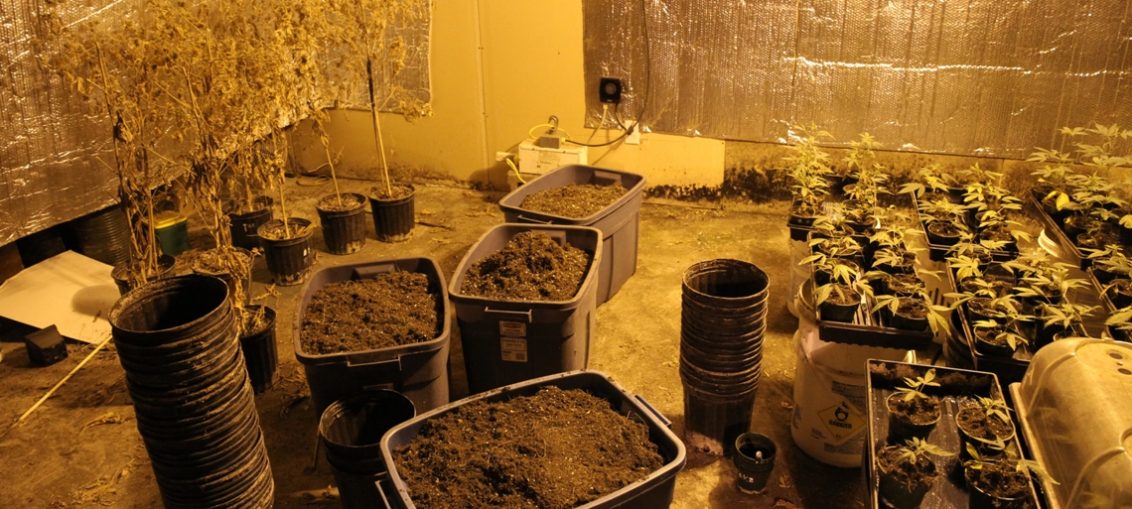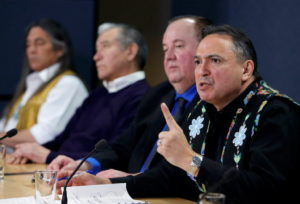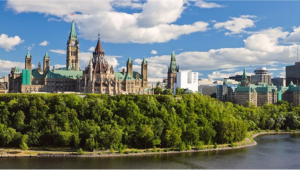From the Eastern Door link to article by Daniel J. Rowe – October 19, 2017

Community member Jeremiah Johnson has used medicinal marijuana since he was 15 years old for chronic pain. He is part of a large percentage of the population continent-wide that would like to see marijuana moved off the controlled substances list and regulated in a responsible and safe way.
In addition, he does not want the Mohawk Council of Kahnawake running the local industry.
Johnson submitted the Kahnawá:ke Cannabis Act to the Kahnawake Legislative Coordinating Commission this week, a 33-point draft law that would regulate the industry in Kahnawake.
He explained his reason for drafting the law.
“As a community member, who does have some expertise on the legal cannabis market and the emerging market as it pertains to Canada, I have drafted a law,” he said.
“It was designed to ensure cannabis and cannabis-related activities within the territories are conducted fairly, honestly, and in the best interest of the people of Kahnawake.”
Primarily, Johnson does not believe the MCK has been forthright in its presentation of the industry’s viability.
“If you think the tobacco and gaming industries were lucrative, wait till you see the kind of money cannabis will bring in, but MCK is keeping people completely in the dark about what they’re doing,” he said.
The Mohawk Council announced this week a special community meeting on cannabis regulations for Monday, October 23. The meeting will include background and updates on the legal cannabis and working group activities, an open discussion, and a review of the Mohawk Council’s executive decision to call a moratorium on all sales on the territory.
Council chief Gina Deer is on the cannabis working group and said the upcoming meeting is an example of how council is intent on being transparent.
“I understand that he (Johnson) wants to push this issue forward because he’s quite confident in what this industry can bring, but what he has to understand is that we have a lot of due diligence to do and it’s not that we’re keeping people in the dark,” said Deer. “It’s that we’re doing a lot of work on the industry from all aspects of the subject.”
Deer said the group is looking at regulations, health and other aspects of the industry, as council develops a plan to have a system set up to adjust to Canada’s plan to legalize pot July of next year.
Johnson’s law would allow all Kahnawa’kehró:non over 18 to purchase, possess, produce and sell cannabis with a proper permit.
The law would also set up the 12-person Kahnawake Cannabis Commission (nine elected and three appointed liaisons) that will have the power to draft and enact legislation; issue, suspend or revoke permits; regulate, monitor and inspect all cannabis sales; and ensure the law is adhered to.
Johnson is keen to take advantage of the opportunity other governmental bodies have already jumped on.
“The federal government, provinces and local governments across Canada are realizing the amount of tax revenue they stand to make with legalization, it’s like winning the lottery, and I’m sure the MCK is seeing things the same way,” he said.
Johnson does not trust the Mohawk Council to spread the wealth.
“I don’t want to see MCK taking over the cannabis industry like they did gaming where all we were promised went out the window and only the rich and connected got to benefit,” he said.
Deer responded to Johnson’s mistrust of council, saying that the MCK supports individual businesses, but also must work towards increasing the standard of living for all on the territory.
“That’s one of the problems,” said Deer. “They don’t want you involved and they don’t trust you, but if you look around at Kahnawake, I think we have a very healthy, rich community, and that’s because of the work of MCK. The work we’re doing here and now is for the collective.”
Johnson’s law would limit the amount of dispensaries, days and hours during which they may operate, types of cannabis that can be sold, as well as limits on amounts that can be sold, to whom and how often.
The retailers would purchase the license fee, and be responsible for a contribution fee (50 cents per gram for dried cannabis, $1 per gram for cannabis concentrates, for example) collected by the commission and deposited into a transparent community fund.
Deer said things are moving forward on the file, and that patience is needed to ensure the industry is regulated and set up efficiently.
“You can’t rush any of these things,” said Deer. “We’re trying to make sure that all the due diligence that needs to be done is done and we’ll move forward informing the community as we go along.”
Johnson knows that there will be debate and opposition to his or any plan to legalize cannabis, and welcomes the discussion.

























Comments are closed.